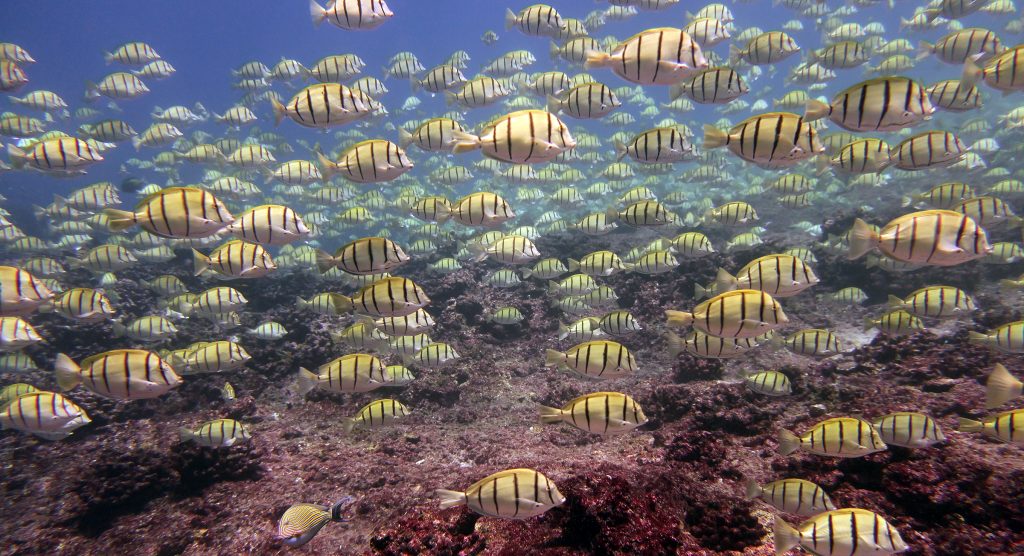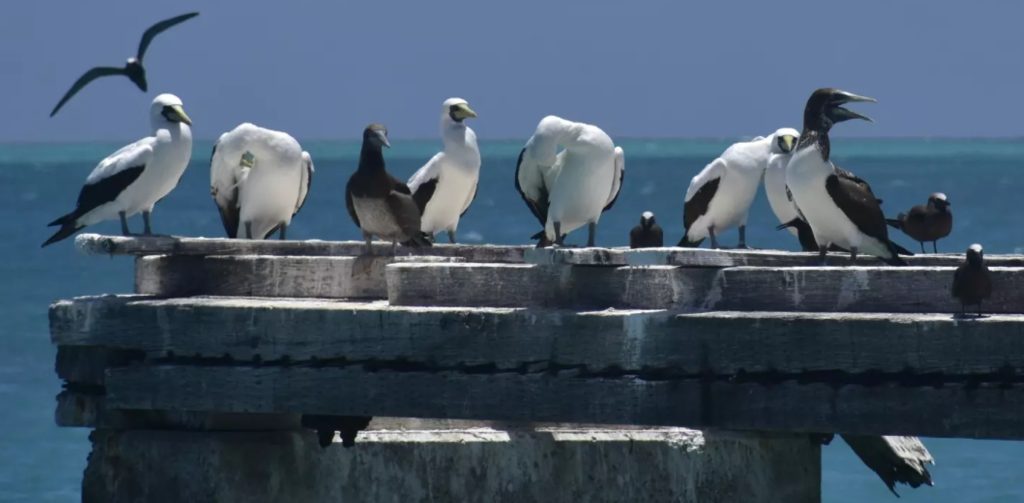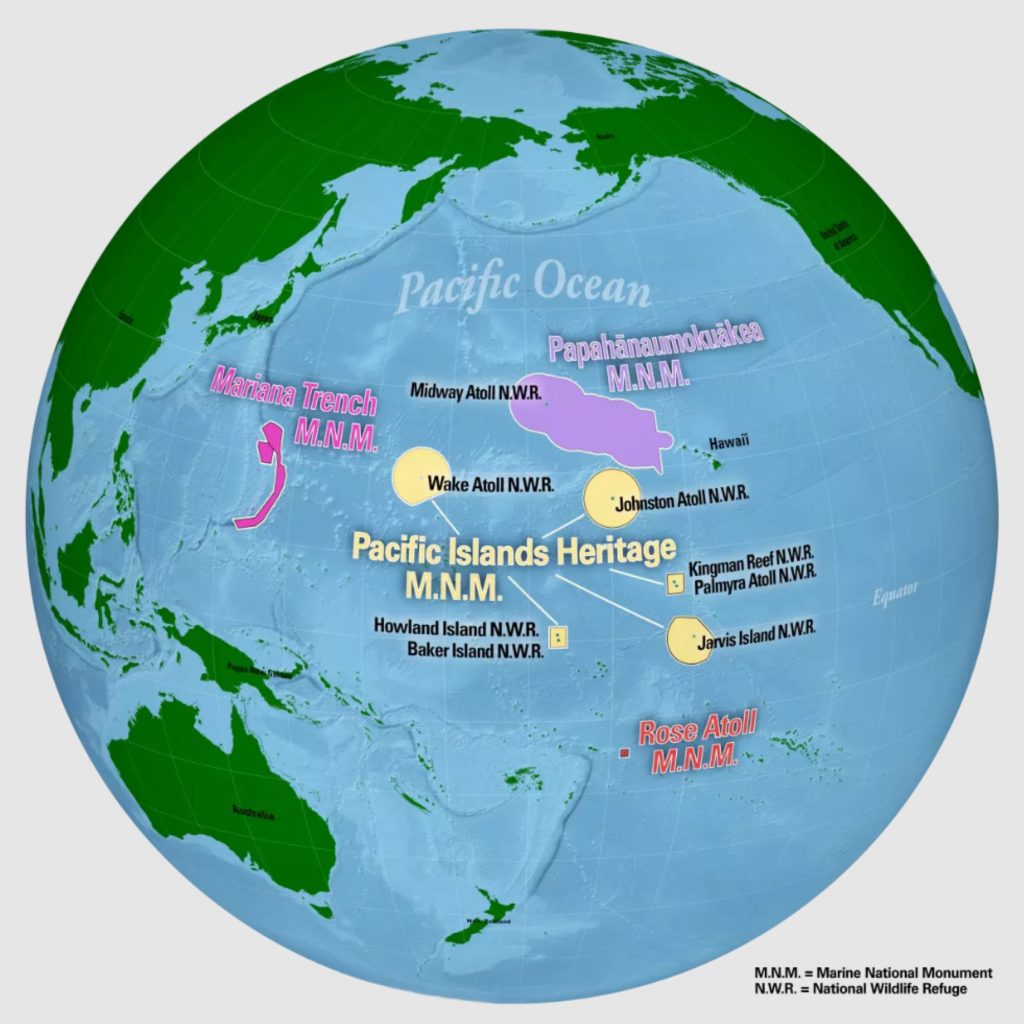Federal court ruling halts commercial fishing granted by Trump executive order in Pacific Islands Heritage Marine National Monument
A U.S. District Court judge on Aug. 8 in Honolulu nullified a letter sent in April that gave commercial fishermen the go-ahead to cast their lines in portions of the Pacific Islands Heritage Marine National Monument after an executive order signed earlier that month by President Donald Trump removed prohibitions on commercial fishing in the area.
The national monument — located south and southwest of Hawai‘i — is home to turtles, marine mammals and seabirds call the national monument home.

Kāpaʻa, Conservation Council for Hawai‘i and Center for Biological Diversity, represented by Earthjustice, feared that wildlife was in danger by commercial fishing practices and argued in a lawsuit filed in May that Trump’s order to open the national monument to commercial fishing and subsquent letter from the National Marine Fisheries Service authorizing it are illegal.
Their lawsuit challenged the constitutionality of Trump’s proclamation, which usurps the power of U.S. Congress on federal lands.
The environmental groups also claimed that allowing commercial fishing in part of the monument changed regulations without providing a process for public comment and rulemaking, stripping core protections from the monument.
Government attorneys, according to the Associated Press, said the National Marine Fisheries Service letter — the one in question — merely notified commercial fishers about a change that already took place through Trump’s authority to remove the prohibition on commercial fishing in certain areas.
U.S. District Judge Micah W J. Smith declared unlawful and canceled the National Marine Fisheries Service letter from April 25 that purported to authorize commercial fishing in the monument as per Trump’s executive order.
Smith’s order halts all commercial activities happening there now and states that “no commercial fishing operators may reasonably rely on [the letter].”

Commercial fishing in the waters between 50 and 200 nautical miles around Johnston Atoll, Jarvis Island and Wake Island should cease immediately.
“The court acknowledged the importance of giving due consideration to the voices of our kūpuna in these challenging times,” said founding member of Kāpaʻa Solomon Pili Kaho’ohalahala in a release about the ruling. “The [National Marine Fisheries Service] cannot ignore our perspectives as the native people who belong to the islands and to the ocean that surrounds us. The law guarantees a process where we can advocate for protecting the generations of our children’s children who are yet to be born.”
Smith issued his decision just 3 days after hearing arguments in the case Aug. 5.
“We applaud the court for rejecting the [National Marine Fisheries Service’s] attempt to gut fishing protections in the monument without going through the formal rulemaking process, which ensures a voice for all those concerned about protecting the monument’s vital species and ecosystems for today, and for future generations,” said Executive Director of Conservation Council for Hawaiʻi Jonee Peters in the release.
A scheduling conference is planned for Oct. 6 to determine the schedule to resolve this claim.
Hawai‘i and Pacific Islands Director and Staff Attorney at the Center for Biological Diversity Maxx Phillips called Smith’s ruling last week a huge win for irreplaceable Pacific Ocean marine life and rule of law.
“The court made clear that the federal government cannot quietly sweep aside critical fishing protections without giving the public a voice,” Phillips said in the release. “These sacred and irreplaceable ecosystems are home to endangered species, deep-sea corals and rich cultural heritage. We will keep fighting to ensure these protections remain in place for generations to come.”

President George W. Bush created the Pacific Islands Heritage Marine National Monument in 2009. It consists of about 500,000 square miles in the remote central Pacific Ocean and includes Johnston Atoll, Jarvis Island and Wake Island.
President Barack Obama expanded it in 2014.
Kāpaʻa, Conservation Council for Hawai‘i and Center for Biological Diversity in June filed a motion seeking a partial summary judgment to specifically address the National Marine Fisheries Service letter sent on April 25 to commercial fishing permit holders.
It was that letter, which has now been vacated by Smith’s ruling last week, gave commercial fishers a green light to fish within the monument’s boundaries despite regulations implementing a longstanding fishing ban still being on the books.



